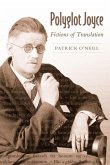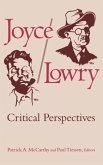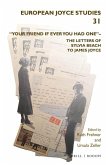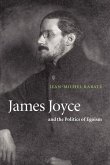Garry Leonard looks in detail at Joyce's representation of a phenomenon that dominates the contemporary landscape: advertising. Taking readers back to its beginnings, Leonard shows that advertising was a central preoccupation of Joyce, one that helps us unravel his often difficult style. Building on the work of cultural theorists like Lacan, Foucault, Baudrillard, Irigiray, and others, Leonard examines commodity culture in Joyce's work and demonstrates the ways in which characters use (or are used by) modern advertising techniques to make their own identities more intelligible and to fill the Lacanian "permanent lack" of modern identity. The commonality of religion and advertising, the use of "kitsch" as a rhetorical device, the commodity market's exploitation of the proletariat, the role of pornography, the impact of advertising's "normative" modes of dress and behavior, and the role of the modern city as a modernist trope are all explored as aspects of Joyce's work or as pressures faced by his characters. As Leonard demonstrates, "culture" in Joyce is the product of a complex response to psychological, sociological, political, economic, and aesthetic pressures. In Joyce, advertising, as a product of that culture, serves both to reinforce the hegemonic discourse of the day and to subvert it. Excellent work has been done on aspects of commodity culture in Joyce by other writers but Leonard's is the first comprehensive study of Joyce and the advertising/commodity nexus, certain to be of equal interest to students and scholars of Joyce, modernism, and cultural studies.
Hinweis: Dieser Artikel kann nur an eine deutsche Lieferadresse ausgeliefert werden.
Hinweis: Dieser Artikel kann nur an eine deutsche Lieferadresse ausgeliefert werden.








